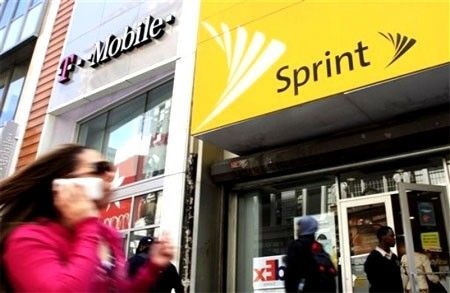Sprint Ready to Fight, Files Suit to Block AT&T, T-Mobile Merger

Sprint Nextel on Tuesday joined the fight with the U.S. government against the $39 billion merger between AT&T and T-Mobile, by filing its own lawsuit to show the two telecom giants that it's not a fan of its proposed matrimony.
Sprint filed its lawsuit in a federal court in the District of Columbia and will bring the suit as a related case to the Department of Justice's (DOJ) suit against the proposed acquisition.
The Justice Department filed an antitrust lawsuit last Wednesday to block the proposed merger because it believes this type of combination will eliminate competition in the market. The agency also felt that for AT&T and T-Mobile to join, it could lead to higher prices, fewer choices and lower quality products for such services.
Sprint had called the Justice Department's move a decisive victory for consumers, competition and our country.
Sprint opposes AT&T's proposed takeover of T-Mobile, said Susan Z. Haller, vice president-litigation, Sprint in a statement. With today's legal action, we are continuing that advocacy on behalf of consumers and competition, and expect to contribute our expertise and resources in proving that the proposed transaction is illegal.
According to Sprint, the lawsuit focuses on the competitive and consumer disservice that would result if AT&T takes over T-Mobile.
Sprint argues that the proposed takeover would:
--Harm retail consumers and corporate customers by leading to higher prices and less innovation;
--Entrench the duopoly control of AT&T and Verizon -- the two Ma Bell descendants -- of the almost one-quarter of a trillion dollar wireless market. As a result of the transaction, AT&T and Verizon would control more than three-quarters of that market and 90 percent of the profits; and
--Harm Sprint and the other independent wireless carriers. If the transaction were to be allowed, a combined AT&T and T-Mobile would have the ability to use its control over backhaul, roaming and spectrum, and its increased market position to exclude competitors, raise their costs, restrict their access to handsets, damage their businesses and ultimately to lessen competition.
The above concerns noted by Sprint are some of the same things that worry the Justice Department.
Deputy Attorney General James M. Cole has said that AT&T and T-Mobile are currently in a head-to-head competition in 97 of the nation's largest 100 cellular marketing areas. He also noted that the two companies compete nationwide to attract business and government customers.
DOJ's 25-page complaint declares that competition in the wireless industry is essential for continued innovation and to maintain low prices.
The Department filed its lawsuit because we believe the combination of AT&T and T-Mobile would result in tens of millions of consumers all across the United States facing higher prices, fewer choices and lower quality products for their mobile wireless services, Cole said. Were the merger to proceed, there would only be three providers with 90 percent of the market, and competition among the remaining competitors on all dimensions-including price, quality, and innovation-would be diminished.
AT&T has argued that the 39 billion deal announced in March will bring another 5,000 call-center jobs to the U.S. at a time when the nation needs it the most.
But even though the U.S. currently has an unemployment rate of 9.1 percent, Justice Department officials refused to be swayed by the merger's promise of job creation.
The FCC continues its review of the proposed acquisition, which is expected to take 180 days.
© Copyright IBTimes 2025. All rights reserved.






















